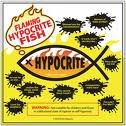As the Democratic candidate for the presidency, Bill Clinton was now striving to prove to the public that he was their best choice to become president of the United States. In a number of debates Clinton backed his convictions against Ross Perot and George H. W. Bush. In a debate at Washington University, the candidates were asked to say why made them different then the others running. As responses to the question, "Ross said he was supported by the people, not parties or special interests... I said I represented change. The President said he had experience" (434). The fact that Clinton was eventually elected shows that the public was tired of conservative voices on the hill and desired change. The parallels to the recent election are also clear, even extending to the results. In the second debate, in Virginia, a town hall style debate helped to strongly set Clinton in the lead. A woman set a question to the three candidates about how the national debt had personally affected them. The answers she received were very enlightening. Perot answered first, saying that the debt forced him to "disrupt my private life and my business to get involved in this activity... strangly, Bush said he'd been to a black church and read in the bullitin about teen pregnancies... I said I'd been governor of a small state for twelve years. I knew people by name who had lost their jobs and businesses" (437). The out-of-touch responses from the other two candidates were clear to the public and a post-debate poll indicated 53% of 1,145 surveyed thought Clinton was the victor of the debate. Clinton's knowledge of the issues he and the American public faced helped him to win the votes he needed to succeed.
After winning the election, Clinton set to work on transitioning the cabinet and the white house. As the Democrats hadn't been in power for twelve years which meant a lot of work for Clinton. He writes that "we had to replace a lot of people, we were committed to casting a wide net for diversity, and there were a great number of people with a claim to be considered" (467). Clinton knew that the people he chose were going to have a large effect on the way the country would run for the next four years and he wanted to make sure that he got the best people for the jobs. In the end, there were some problems with his appointments but on the whole the transition went smoothly enough. Clinton summarized the results saying "we did a good job picking a cabinet and sub-cabinet officials who were able and reflected the diversity of America, but I made a mistake in not appointing a prominent Republican to a cabinet post" (466). Though he succeded in creating an ethically diverse team of individuals, a lack of political diversity conveyed a message to conservatives of lack of bi-partisanship that was not overly helpful to his presidency. A president can't do all the jobs that need to be done, so the people who help him must be skilled enough to aid him well and Clinton took great care in picking those he chose although in retrospect could have given more consideration to other factors when selecting his cabinet.
skip to main |
skip to sidebar

This page is possibly the most awesomely cool EE10 blog ever made by any single person named Vivian Ha.
Link and Ike Caramelldansen


1 comment:
I think that Clinton's assertion that he "represented change" (434) is really fascinating to read about, since that is what Obama based his candidacy off of. Clearly, this is an idea that captures people's attention.
I disagree with Clinton's decision to make his cabinet and officials so partisan. This is because, when you look at the numbers, Clinton got only 43% (according to Wikipedia) of the electorate's vote. This means the other 57% voted for either Ross Perot or George H.W. Bush, and opposed Clinton's beliefs. However, Clinton was president for all of America, both those who supported him and those who didn't. I think he should have made his cabinet reflect the political beliefs of the entire country, not just his own political beliefs.
Post a Comment